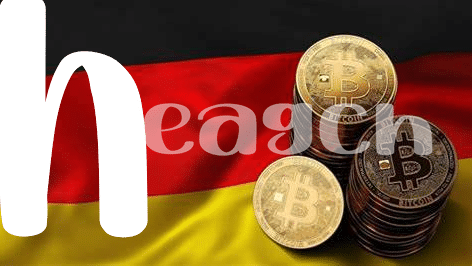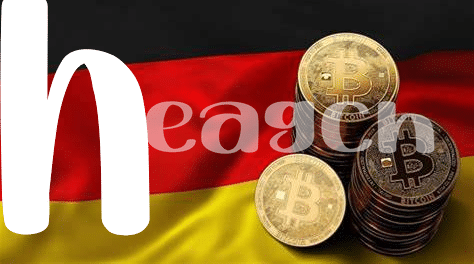Current German Regulations 🇩🇪

Germany has taken significant strides in regulating decentralized finance within its borders. With a focus on promoting innovation while ensuring consumer protection, German authorities have been actively engaging with the complexities of this novel financial landscape. The current regulatory framework in Germany reflects a balance between fostering DeFi growth and safeguarding against potential risks, setting the stage for a dynamic and evolving environment within the decentralized finance sector. As technology continues to outpace traditional regulatory methods, Germany’s approach to DeFi regulations serves as a model for other jurisdictions seeking to navigate the intersection of innovation and compliance.
Challenges Facing Defi Innovation 💡
Challenges Facing DeFi Innovation:
In the rapidly evolving landscape of decentralized finance, challenges emerge as key barriers to innovation. With the decentralized nature of DeFi platforms, security vulnerabilities and smart contract risks pose significant threats to user funds. The need for robust security measures becomes paramount to safeguard against potential exploits and hacks. Moreover, scalability issues within DeFi protocols hinder the efficient processing of transactions, leading to congestion and high gas fees on blockchain networks. Enhancing scalability solutions while maintaining decentralization is a critical challenge that developers seek to address in order to improve the overall user experience and accessibility of DeFi applications.
There is also a growing concern surrounding regulatory clarity and compliance within the DeFi sector. The decentralized and global nature of DeFi platforms complicates jurisdictional matters, creating ambiguity around legal frameworks and oversight. Balancing innovation with regulatory requirements presents a complex dilemma for DeFi projects seeking to navigate the evolving regulatory landscape while fostering continued growth and adoption.
Potential Impact on Financial Institutions 💼

The integration of decentralized finance (Defi) into the German regulatory landscape presents a pivotal moment for the country’s financial institutions. These institutions, accustomed to traditional centralized models, now face the challenge of adapting to a more autonomous and distributed system. The potential impact on financial institutions is two-fold: on one hand, there is the risk of disintermediation as users can directly engage in financial activities without the need for intermediaries, potentially undermining the traditional role of these institutions. On the other hand, embracing Defi innovations could provide opportunities for financial institutions to explore new revenue streams, enhance operational efficiencies, and cater to a more tech-savvy customer base. Finding the balance between risk and opportunity will be crucial for financial institutions navigating the evolving Defi landscape.
Opportunities for Regulatory Collaboration 🤝

Opportunities for regulatory collaboration present a significant avenue for enhancing the integration of decentralized finance solutions within the German financial ecosystem 🌍. By fostering a cooperative relationship between the regulatory bodies and emerging Defi platforms, a conducive environment can be created that supports innovation while ensuring compliance with existing laws and standards. This collaboration can lead to the formulation of frameworks that balance regulatory oversight with the flexibility required for Defi projects to thrive and contribute positively to the overall financial landscape.
Furthermore, engaging in a dialogue with industry stakeholders and adopting a proactive approach towards understanding the intricacies of Defi technologies can enable regulators to stay ahead of potential issues and effectively address emerging challenges. By leveraging the expertise of both regulatory authorities and Defi innovators, a harmonious synergy can be achieved that drives sustainable growth and development within the decentralized finance sector. To explore how other regions are navigating the regulatory landscape of cryptocurrencies, particularly in relation to governmental perspectives, check out insights on the government stance on the future of cryptocurrencies in Fiji at government stance on the future of cryptocurrencies in Fiji.
Future Outlook for Defi in Germany 🔮
For point 5) The future of decentralized finance (DeFi) in Germany shows promising growth as regulatory clarity gradually emerges. With increasing recognition of the potential benefits DeFi offers in terms of financial inclusion, innovation, and efficiency, Germany is poised to become a key player in the global DeFi landscape. As traditional financial institutions start to explore ways to integrate DeFi principles into their operations, a new era of collaboration and competition is on the horizon. The evolving regulatory environment presents both challenges and opportunities for DeFi projects, pushing them to align with compliance standards while fostering continued innovation. With ongoing dialogue and cooperation between regulators, industry players, and DeFi communities, the future outlook for DeFi in Germany is bright, offering a unique blend of stability and innovation in the decentralized financial space.
Recommendations for Regulatory Adaptation 📝

In order to adapt to the evolving landscape of decentralized finance, regulatory bodies in Germany must prioritize proactive measures that strike a balance between fostering innovation and mitigating potential risks. Embracing a collaborative approach with industry stakeholders and international counterparts will be crucial in formulating agile regulatory frameworks that can keep pace with the rapid developments in DeFi technology. Moreover, fostering a culture of continuous dialogue and engagement with DeFi projects can enhance regulatory understanding and enable timely adjustments to policy frameworks as needed.
It is imperative for regulators to adopt a forward-thinking mindset and engage in regular consultations with industry experts to gain insights into emerging trends and challenges within the DeFi ecosystem. By remaining open to feedback and actively seeking opportunities for regulatory adaptation, authorities can create a conducive environment that promotes responsible innovation while safeguarding the interests of market participants and the broader financial system.
